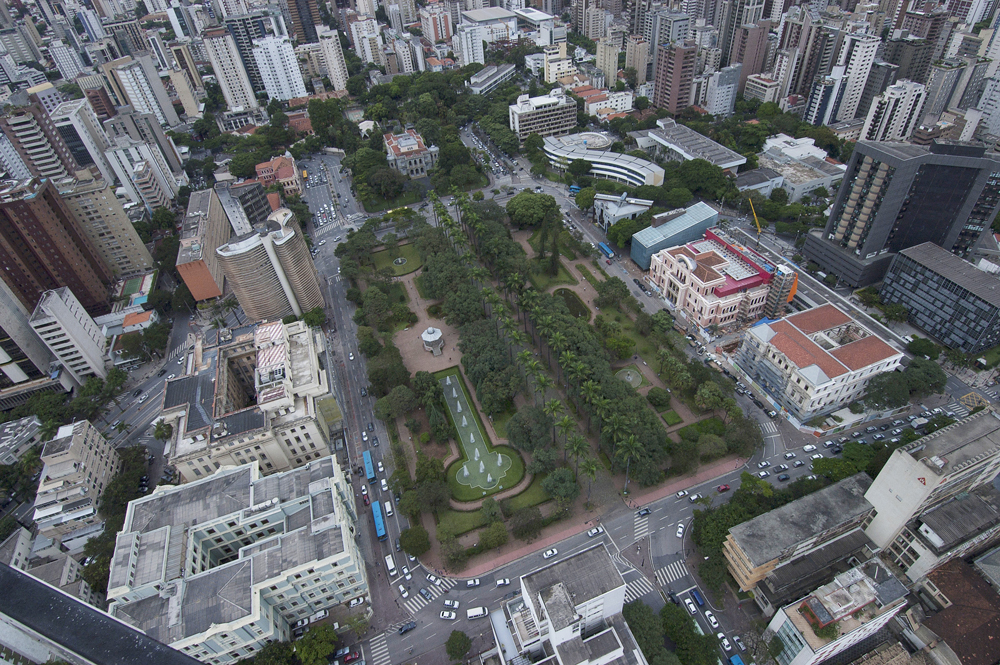São Paulo – A series of events on the Syrian and Lebanese immigration will run in the Minas Gerais History and Geography Institute (IHGMG) later this month. The Immigration Study Program is part of the 300th anniversary of the foundation of the Captaincy of Minas Gerais and brings specific contents on the Arabs. The captaincy was one administrative division of the Empire, and Minas’ was created in 1720.
The program will run in Belo Horizonte (pictured above) and feature an extension course, round tables, as well as a book launch. The organizer of the Arab events, José Osvaldo Guimarães Lasmar, is an economist, professor and researcher at the João Pinheiro Foundation, an public policy-making agency of the state of Minas Gerais.
Throughout the year, other immigrations will also be discussed in seminars at the IHGMG, including Italian, German and Japanese. A grandson of Lebanese grandparents, the professor explains that he has tried to bring up more information about the Syrian and Lebanese immigration in the state. “Perhaps for the fragile diplomatic work of the Arab countries in Minas, our descendants quickly lose their memory and cultural and historical references of immigration. In a capital of over two million and a half residents, and one of Brazil’s most important metropolitan regions, we don’t even have any regular Arabic course whether in public or private institutions,” the researcher says.
Program
To bring more information of the Arab origins in the country as a whole, on March 20 anthropologist and professor at the Fluminense Federal University, Rodrigo Ayupe, will give the extension course ‘Arab Immigration in Brazil: From the 19th century until now.’
The 21st will see the start of the round tables of the Study Program on Immigration in Minas Gerais, beginning with the arrival of Syrians and Lebanese to the state. The event will also feature Omar Souki, professor at the Federal University of Minas Gerais, and will be mediated by Hani Yehia, professor and president at the Lar Druso de Minas Gerais. On the same day, the institute hosts the launch of the book ‘Primos em Minas: Processos de Construção Identitária na Comunidade Árabe de Juiz de Fora’ [Cousins in Minas – Processes of Construction of Identity of the Arab Community in Juiz de Fora] by Ayupe.
Belo Horizonte will also host another lecture on May 29 in partnership with the History and Geography Institute of the Mucuri Vally based in Teófilo Otoni. The lecture will specifically address the Syrian and Lebanese immigration the mining and livestock region of Mucuri Valley.
Professor Lasmar is working on another project, too. The book Memórias do Líbano [Memories of Lebanon] will bring together essays and texts described by the descendants themselves. “Without planning, it became a small movement to rescue and preserve our Arab-Brazilian cultural heritage, a collective effort by the Lebanese descendants themselves that is increasingly larger and more consistent. We have a long way ahead of us, such was the spreading of the Lebanese communities throughout Minas Gerais, always threated by the lack of documents and, unfortunately, by the growing misinformation of the youth about their own background,” he finished.
Quick facts
Course of Lectures on the Immigration in Minas Gerais
March 20 – Lecture ‘Arab Immigration in Brazil: From the 19th century until now’
March 21 – Round table ‘Syrian and Lebanese Immigration in Minas Gerais’ and launch of the book ‘Primos em Minas: Processos de Construção Identitária na Comunidade Árabe de Juiz de Fora’
May 29 – Round table on the immigration n Mucuri Valley
Find out more: https://www.ihgmg.org.br
Translated by Guilherme Miranda




